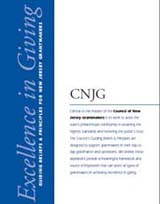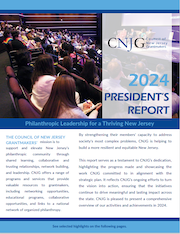Site Search
- resource provided by the Forum Network Knowledgebase.
Search Tip: Search with " " to find exact matches.

This includes insights and tips related to board governance, legal compliance, grantee communications, fiscal responsibility, public disclosure, and many other key areas of foundation governance and operations. It is intended to serve as a practical...
Community foundations are beginning to deepen and shift how they work, adopting an anchor mission that seeks to fully deploy all resources to build community wealth. Moving into territory relatively uncharted for community foundations, they are taking...
Capacity building enables nonprofit leaders and organizations to develop the skills and resources they need to improve their work. Since each situation is unique and circumstances are always changing, effective capacity-building support is tailored to...
President Obama's Hurricane Sandy Task Force released this rebuilding strategy to serve as a model for communities across the nation facing greater risks from extreme weather and to continue helping the Sandy-affected region rebuild. The Rebuilding...

CNJG's President's Reports
This publication from Grantmakers for Effective Organizations offers a framework for thinking about how to measure progress and results in place-based and community change initiatives.
Learn how you can register for events online, search the member directory for organizations and colleagues who have the same interests, and update your profile.
The National Center for Family Philanthropy and Youth Philanthropy Connect, a program of the Frieda C. Fox Foundation, have joined together to bring new resources to the field of philanthropy focused on engaging the next generation of donors and...
